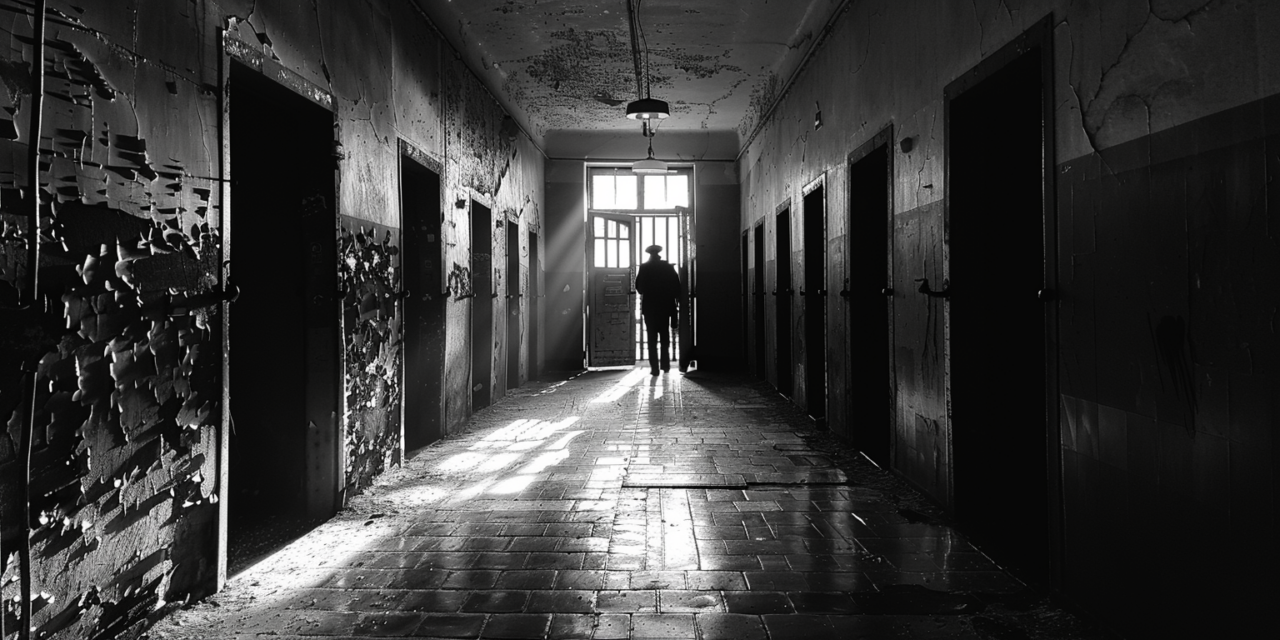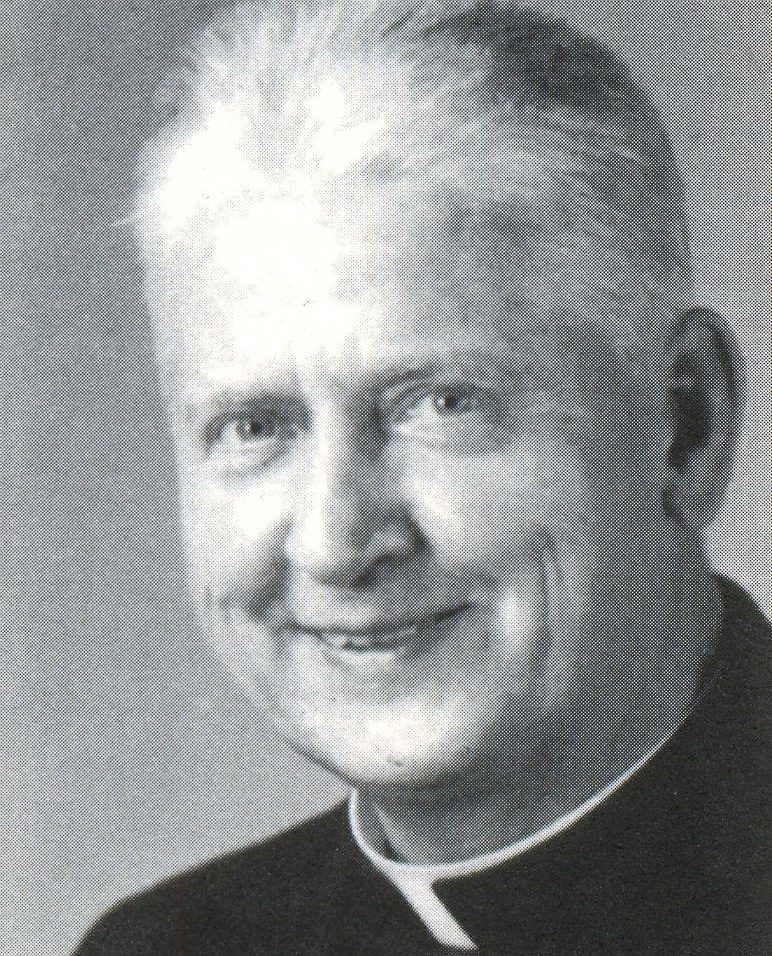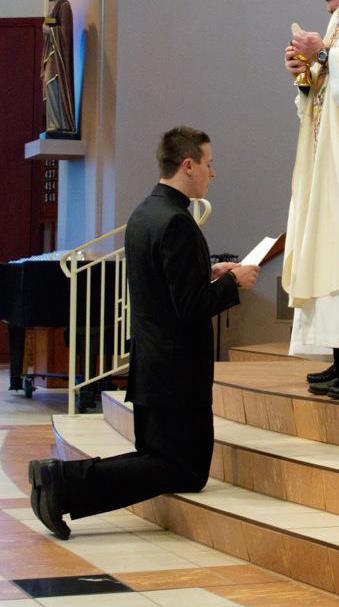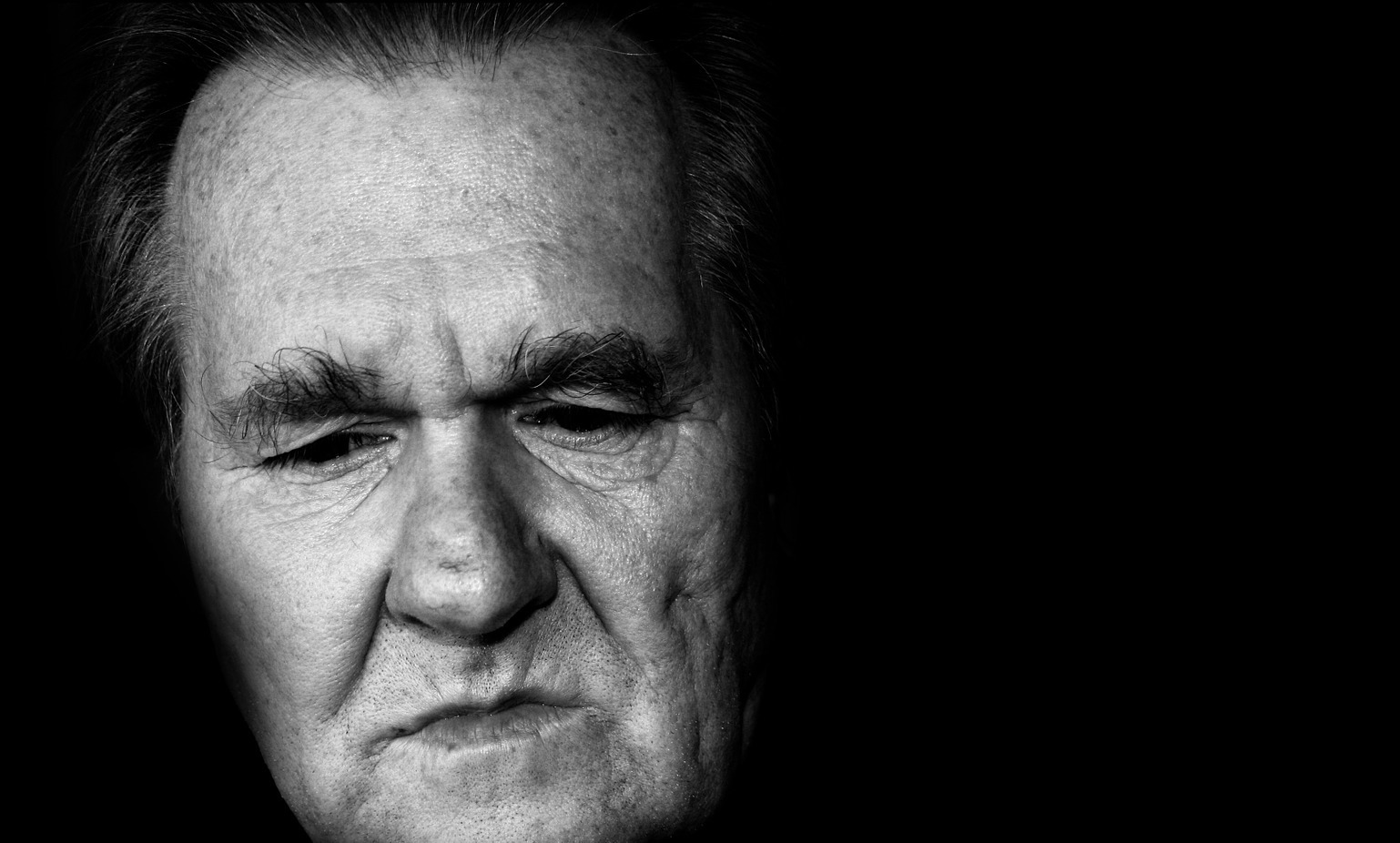Sometimes we come across people who teach us how to be human—that is, how to embrace reality in a way that trusts in the Creator of humanity. Having recently read the book He Leadeth Me by Walter Ciszek, SJ, I was struck by Ciszek’s spiritual endurance and faith that helped him survive 23 years in Soviet prisons and labour camps. In 1939, this Jesuit priest volunteered to be a missionary in Russia. He was soon arrested and accused of being a Vatican spy. Part of his sentence was five years in solitary confinement in the Lubyanka prison in Moscow. He was confined to a small, white-walled cell, and day after day, month after month, the monotony of his existence was broken only by regular interrogations and meals—meals that barely kept him alive. In this stark, unforgiving environment, Ciszek was forced to confront the relentless passage of time. He turned to one thing that could not be taken from him: prayer. He recited the prayers of the Mass and the Daily Office from memory. He prayed for others in the world experiencing suffering and even for his interrogators, for their blessing as children of God. Ciszek wrote, “I tried very hard not to worry about what tomorrow would bring, what I should eat, or what I should wear, but rather to seek the kingdom of God and his justice, his will for me and for all mankind.”
 The Present Moment
The Present Moment
I was amazed that in the awful conditions he faced, he could speak about “God’s will” and how he could work to build the kingdom of God. From solitary confinement! At first I assumed Ciszek had an antiquated understanding of God’s will, as if God orchestrated his arrest and imprisonment. But what I soon realised was that “God’s will” was another way of describing accepting the present moment with trust. Ciszek always assumed a choice could be made: whether to pray, how to pray, how to respond to his interrogators, whether to hold resentment or trust. He assumed a plan was unfolding and that he could cooperate with it. God’s will could emerge even in these dire circumstances. “Your will be done on earth as it is in heaven.” Ciszek certainly felt anger and sorrow. He even contemplated suicide. But again and again he returned to a holy kind of acceptance and an Ignatian indifference that was rooted in trust. Ciszek wrote:
What [God] wanted was for me to accept these situations as from his hands, to let go of the reins and place myself entirely at his disposal. He was asking of me an act of total trust, allowing for no interference or restless striving on my part, no reservations, no exceptions, no areas where I could set conditions or seem to hesitate. He was asking a complete gift of self, nothing held back.
Perfect Response
Over and over in the book Ciszek kept referring to Ignatius’ Principle and Foundation that states our purpose is to praise, reverence, and serve God. He saw the present moment, his present circumstances, as an opportunity to co-labour with God, despite his few possessions. He may not have had much, but he did have liberty, memory, understanding, and will, as Ignatius includes in his Suscipe prayer. These were his intangible possessions—core gifts that were his to use. Perhaps Ciszek remembered that prayer of surrender. And so he invites God to animate his human faculties in accordance with divine love and purpose. In other words, he opened himself up to the flow of the divine. This was Ciszek’s response to his situation, a situation he had no control over. But rather than resisting, he responded with love and trust. Someone recently told me that “The kingdom of God will come when perfect gift meets perfect response.” Astoundingly, Ciszek recognised the perfect intangible gifts he possessed and responded with a sincere desire to use them to serve God. He came to understand that God’s will is a relationship, not a roadmap. Ciszek allowed himself to dive into the depths of a relationship with a God who suffered with him and beheld him even in an unfortunate human-created sphere of suffering.
 Stripped
Stripped
Richard Rohr speaks about the “tragic sense of life.” Suffering has a way of cracking us open, stripping away the extraneous and attuning us to what really matters. In a way, it can shock us into the present moment. Ciszek initially experienced what Mirabai Starr describes as a being plunged into darkness. “We can’t feel the divine presence anymore. We can’t even conceive of God anymore. Nothing makes sense, spiritually speaking.” She notes the experience of John of the Cross’ dark night of the soul. “What’s really happening is that we’re being stripped of the obstacles of sensory attachment and pre-conceptions about God, and having a naked encounter with the reality of divine love.”
It’s the fruit of suffering that sometimes opens our eyes to the love needed in that particular moment. Ciszek seemed to ask the question that I have found so helpful: What does love require of me right now? That question snaps you out of the ego and into the present moment. It orients you outward and invites you to examine your resources and use them for love. Later, when Ciszek was moved to a hard labour camp, he worked with other priests and a nun on the outside to smuggle in bread and wine for Mass. He gave counsel and befriended his fellow prisoners. He accepted his situation as his mission, as the will of God. That freedom kept Ciszek resiliently hopeful, present, and free from despair.
We are reminded that the human spirit is capable of finding light in the darkest of places. While most of us may never endure the kind of suffering Ciszek experienced, we can all learn from his example of resilience, faith, and the unwavering commitment to living a life of purpose and love, even in the face of adversity. Ciszek’s story is one of hope, reminding us that the path to union with God lies not in our external circumstances, but in our response: in the choices we make and the perspective we choose to adopt.
Related posts:
Listen to the podcast version of this post…


 Stripped
Stripped





